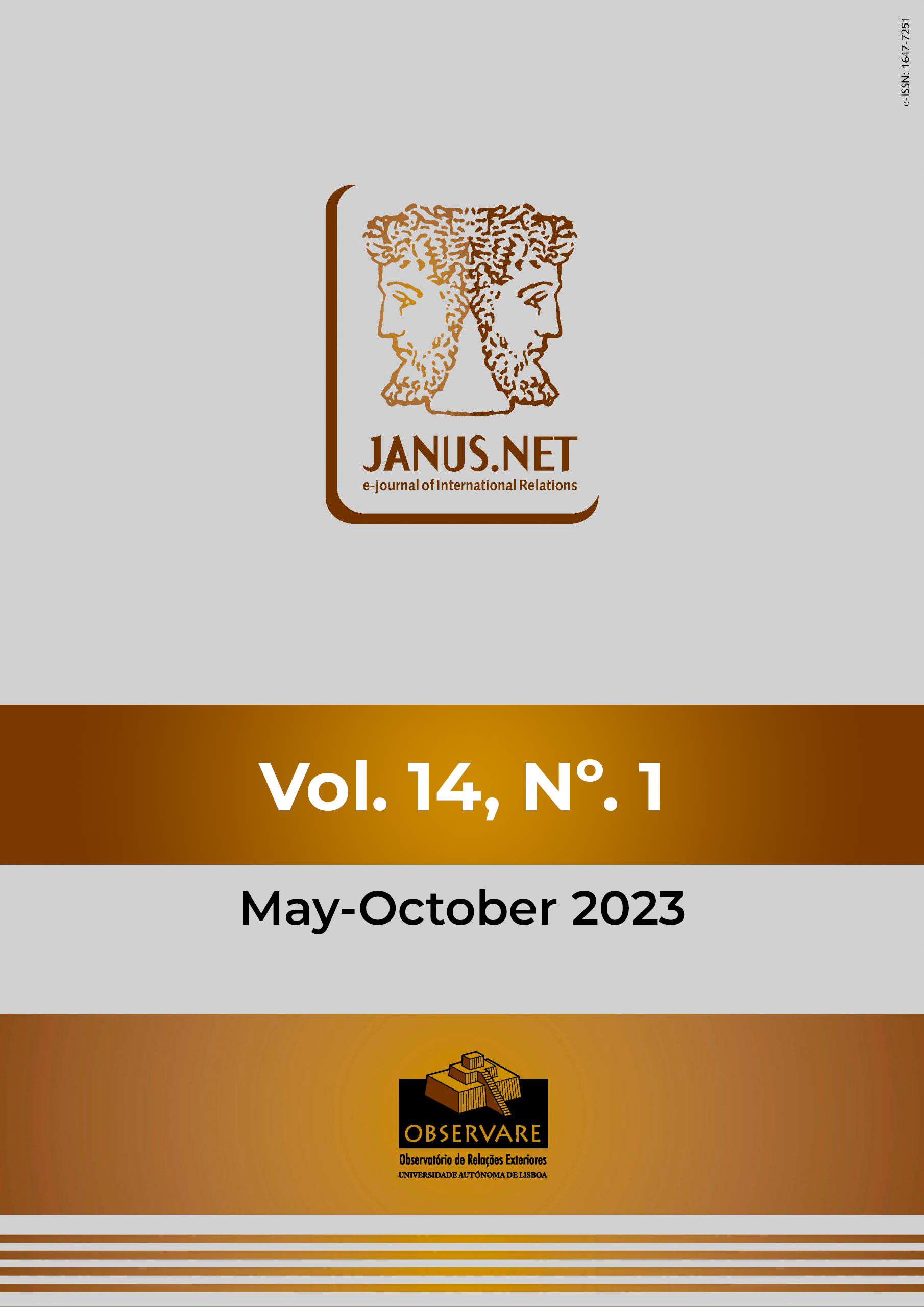GAME CHANGE IN THE GULF OF GUINEA: THREE INTERTWINED PERSPECTIVES ON SINO-EQUATOGUINEAN COOPERATION
DOI:
https://doi.org/10.26619/1647-7251.14.1.10Palavras-chave:
República da Guiné Equatorial, República Popular da China, Iniciativa “Uma Faixa Uma Rota”, Países de Língua Portuguesa, Fórum de MacauResumo
A República da Guiné Equatorial (GE) tornou-se membro do Fórum para a Cooperação Económica e Comercial entre a China e os Países de Língua Portuguesa (Fórum de Macau, doravante designado por FM) em 2022, tornando-se o décimo estado a fazê-lo. A integração oficial da GE, decorreu à margem da Reunião Extraordinária Ministerial do Fórum de Macau em 2022, após o país ter aderido à Comunidade dos Países de Língua Portuguesa (CPLP) em 2014. Desde 2015, a China e a GE têm vindo a intensificar a cooperação bilateral desde o estabelecimento das relações de parceria de cooperação abrangente (Ministério dos Negócios Estrangeiros da República Popular da China, 2015). Em 2019, os dois países assinaram o Memorando de Entendimento sobre a Iniciativa Uma Faixa Uma Rota (B&RI, em sigla inglesa) durante a segunda edição do Fórum Faixa e Rota em Pequim e iniciaram desde já uma abordagem estratégica na cooperação bilateral. Por conseguinte, tendo em consideração a singularidade da GE como País de Língua Portuguesa e o facto de ser o mais recente membro do FM, este artigo coloca e responde à seguinte questão central de investigação: Qual será o impacto da cooperação Sino-Equatoguineense à luz da recente adesão da GE ao FM? Metodologicamente, a investigação utiliza dados qualitativos sustentados por referências triangulares, incluindo relatórios oficiais e não oficiais, estatísticas oficiais, documentos académicos e notícias dos meios de comunicação social, para analisar as relações bilaterais Sino-Equatoguineenses no âmbito da B&RI nos países lusófonos. Desse modo, a fundamentação qualitativa metodológica centra-se na singularidade da GE como um dos países lusófonos que se envolve na B&RI Chinesa em três níveis: doméstico, regional e global. O presente artigo apresenta a seguinte estrutura: (1) Introdução; (2) A singularidade da GE como um dos PLP; (3) B&RI e os Países Lusófonos; (4) Cooperação entre a Guiné Equatorial e a China; (5) Conclusão - o Futuro da Cooperação Sino-Equatoguineense.


